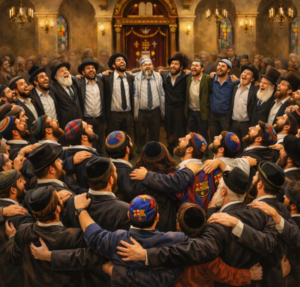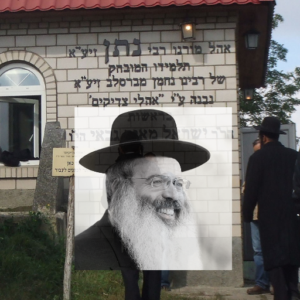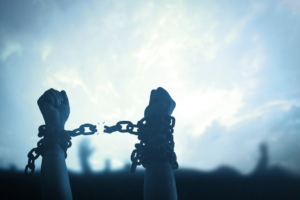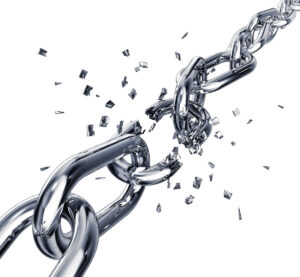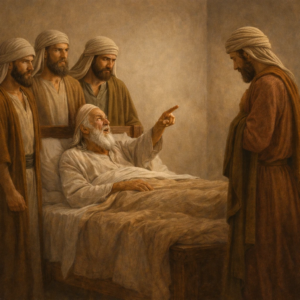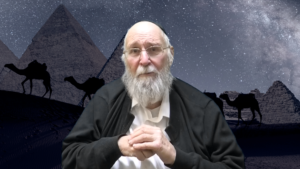- Faith ⬦ Read ⬦ Shabbat ⬦ Weekly Torah Portion
It’s Not a Failure, it’s a Challenge! – Parshat Vayeitzei
This week’s Torah portion is parshat Vayeitzei. From all the wonderous stories in the parsha we will focus on Jacob’s marriage to Rachel and Leah and the birth of their children. There are many interesting points contained in this story. We will embark on a fascinating journey of discovering them.
The main points addressed in the parsha are as follows: First there is Jacob’s departure from Be’er Sheva, where his father Isaac lived, and his journey to Charan. Then comes his famous dream of a ladder placed on the ground and with its top reaching to the sky and the angels of G-d ascending and descending on it. The next topic deals extensively with the flocks: giving Lavan’s flocks to drink, Jacob’s work with Lavan’s flocks, the increase and growth of the size of Jacob’s flocks as well as watering then and raising them, and of course at the center of the parsha is Jacob’s marriage to Rachel and Leah and the birth of the twelve tribes.
The other notable topic throughout the parsha is Lavan’s cunning behavior. He constantly deceived and exploited Jacob until the time when God commanded Jacob to return to the land of his fathers, and then he fled with his wives and children. Lavan pursued Jacob and only G-d Himself was able to prevent him from harming Jacob. And this takes us to the end of the parsha.
We will now go into the details and discover a delightful message in the parsha in light of one of Rabbi Nachman’s wonderful teachings. Rabbi Nachman teaches:
Every person has a heart of stone, a certain “capriciousness” that he must break. A heart of stone is a symbol of the delusions and self-deceptions that prevent a person from drawing closer to the Creator. The Torah forbids using an iron instrument to chisel the stones used to build the Temple. Our sages tell us that when King Solomon wanted to build the Temple, he used the “shamir” worm to cut the stones which he obtained from Ashmadai, the king of the demons. Like the “shamir” worm, anyone who wants to make himself into a holy sanctuary must break his heart of stone. A heart of stone is a representation of the evil inclination which is known as the “power of imagination.” These are the delusions and deceptions that prevent a person from attaining holiness. Similar to the peel that surrounds and envelops the fruit, so that there is no way of reaching the fruit without removing the peel, so are a person’s false imaginings and delusions. They are the “klippot” that surround holiness which prevent a person from reaching holiness. When a person breaks the impulsiveness of his heart and his power of imagination—even though he still has work left to do—his mind can already fully enlighten him.
These delusions (“klippot”) exist in every world and on every level. Even a person who has already overcome his low-level imaginations (“klippot”) from the past, when he progresses spiritually and ascends to a higher level, he will be tested again with a new set of false imaginations and klippot that will hinder him from drawing closer to holiness. This can cause a lot of frustration, because he can make the mistake of thinking that he has fallen and lost everything he has already achieved. This is why Rabbi Nachman warns us and teaches: “About this, many chassidim make a mistake when suddenly it seems to them that they have fallen in their service of G-d. In truth, it is not a fall at all but merely a sign that they need to go up another level. This is when the klippot of one’s desires are reawakened and strengthened again, with all kinds of confusion, and preventions, imaginings, and bad thoughts. Therefore, one has to overcome them anew each time and to return, subdue, and break the klippot and the impediments on each and every level. But this is not a sign that a person has fallen from his level at all “(Likutei Moharan I, 25).
Like the “shamir” worm, anyone who wants to make himself into a holy sanctuary must break his heart of stone.”
Now we will embark on a wonderful spiritual journey to understand the parsha in light of the words of Rabbi Natan:
“And Jacob left Be’er Sheva and went to Charan” (Genesis 28:10). “Be’er Sheva” symbolizes holiness. Each spiritual level is included in the seven lower Sefirot (Divine emanations). The Hebrew word “Charana” (meaning “to Charan”) represents “charon af” (anger), because the klippot contain strict judgments which are “charon af.” Jacob rose up from the spiritual level he was on to progress to the next spiritual level, but that caused the klippot on that higher level to awaken in the form of all kinds of difficulties, and suddenly “the sun darkened for him.” This means that the light, which is the aspect of the mind, suddenly darkened for Jacob. Despite this, Jacob persevered and remained steadfast in holiness, as it is written: “He came to the place and slept there” (Genesis 28:12). He merited to happen upon “the place,” i.e., the Holy of Holies. In his dream, Jacob saw a ladder placed on the ground with its top reaching up to heaven with the angels of G-d ascending and descending on it. This is a hint to the order of creation. A person must climb and ascend, step by step, and when he reaches a higher level, the difficulties will be reawakened. And there are those who can, G-d forbid, fall down from this. Our sages relate that the sun set for him sooner that it was supposed to according to the laws of nature. Thus, they hinted that the reason the sun had set was not because he had fallen from his spiritual level but because he had ascended to a higher spiritual level and his self-deceptions and difficulties had resurfaced. This is what Jacob expressed in admiration when he awakened from his sleep, and said: “Indeed, the Lord is in this place, and I did not know it” (Genesis 28:16). That is, it is not as I thought, that my becoming distant from the Creator was what caused the darkening of Divine light, because in truth, the presence of G-d was found there. The darkness was created only because I had progressed to a higher level and had to break the delusions which were reawakened.
After Jacob had himself gone through the process and merited reaching the high level of the “Holy of Holies,” Jacob went “artzah b’nei Kedem”—”towards the land of the people of the East” (Genesis 29:1) to draw closer the lofty souls who fell “artzah”—”to the earth” and return them “kedem”—”before” the Creator, as in the verse, “Chadesh yemeinu k’kedem”—”Renew our days as of old” (Lamentations 5:21). Jacob saw three flocks of sheep near the well and a large stone covering the well. The “well” symbolizes the waters of knowledge and the sweetness of the Torah. The “stone” symbolizes the “heart of stone” blocking the well, preventing anyone from drinking the water and advancing to a higher spiritual level. “The shepherds together with the flocks of sheep” hint at all the retreating backwards of those who feel frustrated by the feeling of distance they experience which they do not understand is due to the difficulties that reoccur every time anew, every time they go up a level. Jacob spoke to them: “My brothers, where are you from?” That is, you are my brothers, and you deserve to drink from the waters of the well so you can move forward. But they replied to him “We are from Charan.” They admitted that they were not able to roll off the stone, that is, to remove the spiritual blockages that arise from “Charan”—from the klippot “charon af”— “anger” which are continually being awakened anew.

In his dream, Jacob saw a ladder placed on the ground with its top reaching up to heaven with the angels of G-d ascending and descending on it.
At this stage, Jacob realized that the main blockage is the “heart of stone,” the “power of the imagination” which originated in Lavan HaArami. Lavan the Aramite, as his name implies, was a deceiver and a swindler. For seven years he enslaved Jacob, and in return he explicitly pledged to give him his daughter Rachel as a wife, and after cheating on him and giving him Leah in place of Rachel, he further dared to present the situation as if Jacob is the one who was being unfair by asking for the younger before the elder. Jacob asked the shepherds: “Do you know Lavan the son of Nahor?” They answered: “We know him” (Ibid 29:5). They sadly admitted to Jacob that they were aware that the reason they were unable to remove the heart of stone was because of the influence of the Lavan HaArami who had mislead everyone with the power of his deceptions. When Jacob saw how Lavan had deceived them, he rolled the stone off on his own for them. Jacob’s whole desire was to give everyone access to the waters of knowledge and restore the souls of Israel so that they could each achieve their rectification. Jacob rolled off the heart of stone from the mouth of the well like someone who easily pulls a cork out of a bottle. Because after Jacob himself went through the process, he had the power to reveal to others the way to be saved from the delusions of Lavan, from the deception of the “heart of stone.”
And so, throughout the parsha, Jacob is able to overcome Lavan each time: both when he tricked him and switched his daughters and also when Lavan cheated him a hundred times in his work with Lavan’s flocks. Jacob’s endless work with the flocks of Lavan mentioned in the parsha hints at the future generations. When Jacob saw that there was no hope that those souls would be able to deal with Lavan’s deceit, he fled from there so that the future generations would be able to live far from such lies and fantasies. But even then, Lavan chased after them. As we have already described, the deceptions and imaginings do not cease, but rather new ones come and envelop a person all the time. Then when G-d saw the self-sacrifice of the tzaddik to save the Nation of Israel and guide them on the true path, G-d Himself intervened and warned the evil Lavan: “That’s enough! Beware of speaking with Jacob either good or bad!”
This is the explanation of Jacob’s words when he answered Lavan: “I was [in the field] by day when the heat consumed me, and the frost at night” (Ibid, 31:40). That is, “I have labored and toiled very much in prayer and hitbodedut and Torah study day and night, in the immense heat and in the freezing cold of night, with tremendous efforts in serving G-d—everything I am doing is for G-d, to draw close the souls of Israel. Thus, even though they have not yet won the war, you do not have the power to do any damage to them due to my power and the power of my forefathers, the true tzaddikim, which will protect them and will save them from you, because G-d Himself will help me until I finish with them that which I began: to bring them all close to G-d, as it is written: “God has seen my affliction and the toil of my hands, and He reproved you last night (Ibid 31:42).
(Based on Likutei Halachot, Matana 4:12-14).
- angelsbreslevBreslovdreamDvar Torah for Parshat Vayeitzeiemunahevil inclinationfailuresfaithfeaturedgood and evilheart of stoneHitbodedutHoly of HoliesJacob's ladderJacob's marriageJewishjudaismKlippotLavanlife's challengesLikutey HalachotLikutey MoharanNo DespairParashat Vayeitzeiparshat VaYeitzeiParshat VaYetzeParshat VaYetzeipower of imaginationprayerRachel and LeahReb NosonRebbe Nachmanspiritual journeyten SefirotTzaddik
- 0 comment



